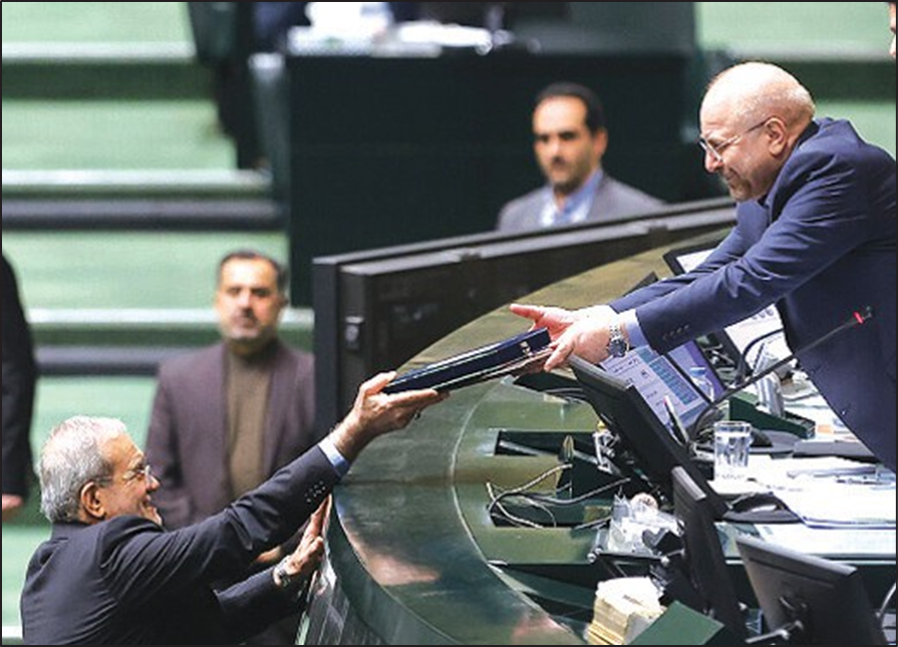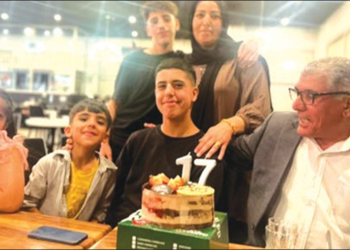ranking Iranian-American to hold elective office in North America.
The San Francisco Ethics Commission last month concluded that Mirkarimi committed job-related misconduct when he grabbed his wife’s arm hard enough to bruise her.
The Ethics Commission must now send the case to the San Francisco Board of Supervisors, which will then have 30 days to decide whether Mirkarimi will keep his job. But as of Monday, the Ethics Commission still had not forwarded the case, making it look like the Board of Supervisors will face a vote on Mirkarimi just days before the November 6 lections, in which five of the 11 supervisors will be on the ballot.
Mirkarimi asked that his case not be submitted to the supervisors until after the election, when he would likely have a better chance of prevailing. But the Ethics Commission said it would not wait that long.
Members of Ethics Commission this month said they had concluded that Mirkarimi’s account of the bruising incident—given under oath—was false.
As Mirkarimi described it, his actions December 31, were a misguided but well-intentioned attempt to restrain his wife, Eliana Lopez, in hopes of defusing an argument. He said he had never touched her in anger before or since.
But a majority of the five ethics commissioners say they believe Mirkarimi had violently attacked Lopez in their home that day and had also assaulted her at least once before.
They relied heavily on the description offered by Lopez in a tearful video she recorded at a neighbor’s home January 1, and in statements quoted by two neighbors.
Commission members did not make formal findings on whether he had testified falsely. But their comments to that effect will be part of the record sent to the supervisors, which can consider Mirkarimi’s candor as well as his treatment of his wife in weighing his fitness for office.
Lopez, in her testimony to the commission, disavowed her reported statements and supported her husband’s version of events. But commission member Jamienne Studley said she considered the video to be “the more credible source as to whether there were previous acts of physical abuse.”
Lopez’s video and statements to her neighbors made it clear that “a more serious incident occurred than just what has been characterized as an arm grab,” said Commissioner Dorothy Liu.
A third member, Beverly Hayon, agreed that the abuse had been serious, “despite whatever she [Lopez] may say now.”
Even Benedict Hur, the commission chairman and the only one of its members to conclude that Mirkarimi’s misconduct was unrelated to his public duties, said the evidence showed that Mirkarimi “sought to minimize the severity of that conduct.”
In his June 28 testimony to the commission, Mirkarimi said the incident that left a bruise on his wife’s arm had occurred in their van December 31 after an argument over her plan to take their two-year-old son, Theo, on a trip to her native Venezuela.
After he parked the van at their home, Mirkarimi said, Theo was crying and “I was stupidly, wrongly thinking that I can, you know, respond to this in a way that might calm things down.
“And I reached out to my wife, and I put my hand underneath her right arm, and that’s how it got bruised.”
Questioned by the commissioners, he said the argument did not continue after they entered their house, he did not assault her or grab her arm there, and he had never done so before.
But in the 45-second video, recorded at the home of next-door neighbor Ivory Madison, Lopez displayed her bruised arm and said tearfully, “This is the second time this is happening.”
Madison testified that Lopez told her the argument had begun in the van but escalated to physical abuse in the house. “She said that Ross repeatedly grabbed, pulled and pushed her violently,” Madison said. “She said he slammed her against a wall while grabbing her arm and refused to let go,” while Theo was “screaming and crying hysterically.”
At one point, Madison said, Lopez told her Mirkarimi was trying to get into the house and she pressed against the door to keep him out, while threatening to call the police. Madison said Lopez also told her that Mirkarimi had physically abused his wife once before in 2011.
The couple’s upstairs neighbor, Callie Williams, also submitted a sworn declaration saying Lopez had told her January 4 that Mirkarimi had assaulted her inside their home on December 31 and had also physically attacked her in March 2011.
Lopez testified under oath that her statements on the video were true. But she then alleged that Madison had told her what to say in the recording, repudiated her videotaped assertion that Mirkarimi had attacked her once before, and denied Madison’s and Williams’ accounts of what she had told them.
Mirkarimi also vehemently disputed the neighbors’ allegations at the commission hearing and in statements to the news media. But his lawyers chose not to call either Madison or Williams to the hearing for cross-examination.
Hur, the commission chairman who is also a lawyer, said at the hearing that a witness’ declaration that is not cross-examined must be considered credible.
Once the Board of Supervisors receives the case, the board must act within 30 days or Mirkarimi will be automatically reinstated. It will take a vote of nine of the 11 supervisors to oust Mirkarimi.
Five of the 11 supervisors are running for re-election in November; two of them face tough contests.
Peter Keane, a Golden State University law professor who has followed the case, told the San Jose Mercury News, “The supervisors are total political animals. Like all politicians, their first rule of life is survival. They are first going to look at how what I do in the Mirkarimi vote is going to affect me at the polls or in terms of my political career.”
In the past few weeks, Mir-karimi has been trying to rally public support and orchestrate public demonstrations of support to impress the supervisors.
Keane said, “If Mirkarimi were able to show he has a fair amount of supporters, he could stand a good likelihood of turning votes his way.”



















